Pnina Pfeuffer is a leading figure in Haredi feminism and a regular columnist for Ha’aretz, Jerusalem Post, and many other publications. An activist with Darkenu: the Moderate Majority, and its outreach coordinator for the ultra-Orthodox community, Pfeuffer spoke to Fathom interns Gabrielle Ritzer and Jack Agnew about her journey to activism, the tensions between Haredi feminism and ultra-Orthodoxy, and the new opportunities opened up by social media for dialogue across political and gender divides.
Personal Journey
Gabrielle Ritzer: Can you tell us a bit about your personal journey? What led you to where you are today – a leader of Haredi feminism?
Pnina Pfeuffer: I was always a feminist from a young age. My family is English-speaking and that’s the word they used to describe what I wanted and the things I argued for and fought about. What led me to be a feminist activist was the realisation that I couldn’t leave it up to other people. It was my business to take care of it. If I didn’t do it, no one else would.
Jack Agnew: Raising two young daughters in a religious household, studying the Talmud, and working for gender equality – what tensions have you experienced managing these roles and how have you managed those tensions?
PP: Studying, even though it is very unusual in my community, hasn’t created any issues because it’s still small scale; it’s not threatening to any mainstream institutions. I have encountered more tensions between religious law and feminism. That’s a tension that is also inside me. I have to figure out how to resolve that conflict for myself and for people around me who want to follow in my footsteps and ‘do as I do’.
A lot of the issues that ultra-Orthodox women face are not ‘religious’ as such, they’re just regular workplace or family issues that are amplified by the fact that we come from a more traditional society, where everything changes more slowly, people are wary of change, and the traditional family is more prevalent as a model to aspire to. All those things make regular issues that women have more of an issue for us.
Women, Feminism and Haredi Society
JA: You’ve used the term ‘double-shifting’ to describe the situation facing Haredi women in Israel. What do you mean by this?
PP: I’ll give you a good example. A year ago I was sitting on a Knesset committee about early child care. The ministry in charge hadn’t spent the money that had been allotted to it, which is unusual. Members of the committee were saying things like ‘if we don’t have child care, then women won’t be able to go out to work’. In other words, women were still being viewed as the caring parent. I wrote an op-ed about how women may be 50 per cent of the work force in Israel but childhood is still seen as a ‘women’s issue’. Children are not yet seen as a family issue or a parenting issue. The language has to change. There has to be the understanding that women work, and that gender roles have shifted. The support system has to support the family, not the supposedly unusual women who chooses to have a career or job.
Another problem is that a lot of feminist theory and activism comes from the career women who have money and power and so a louder voice. But many women work because their spouse doesn’t make enough money, which is very common in Israel. Many women work because they need to eat, not because they want to have a career. A lot of women are not doing work to ‘get ahead’ but to make minimum wage. The teaching assistants in early childhood care make minimum wage, for example. They take care of other people’s children and then they go home and take care of their own children.
As far as Haredi women are concerned, everything is amplified. Women have to be breadwinners because a large percentage of Haredi men don’t work. Yet still there is a double message for working Haredi women: that you are doing the right thing and the wrong thing at the same time. Let’s say you work in an office, and you get home late, so even though you’re doing your best for your family and husband, still the neighbours and society at large will frown upon you for missing Parent Council or not being home early enough to be at the park with the kids. These things are not spoken of, it’s not a sentiment people will express in words, but there’s that feeling like maybe you’re doing something wrong.
GR: You had said that within the Haredi society, the decision makers are a small group of men, leaving out most men and almost all women. Are there any emerging signs of Haredi women and those excluded Haredi men making common cause to open up decision-making and achieve a wider distribution of power?
PP: The answer would be yes, especially among people between the ages of 20 and 40. First of all, Haredi society isn’t as centralised as it was; people have moved out of the heartlands because of how expensive housing is. You have many, many more Haredi communities today, and simply a growing number of people, almost 800,000, so it just can’t be as centralised as it once was. Among those aged 20 and 40, more are getting an education and getting jobs. If once upon a time the people who had power were the rabbinical authorities and the people close to them, today there are also lawyers and other professionals that have a standing in the community and they can also make a big impact, much more so than before.
The main political parties also have Haredi members now, and even though the numbers are not big, they have an impact. People are saying ‘Okay, we don’t have to vote for the Haredi parties, we can vote for other parties’. And even if we don’t vote differently, we can seek a different style of political organisation for ourselves. All this is still in the infant stage, but if you look 20 years ahead, it will make for a big change.
JA: Is there a distinctive Haredi feminism emerging? If so, what are its characteristics? How does it differ – if it does – from the wider traditions of Israeli feminism?
PP: Yes, there is Haredi feminism, because there are Haredi feminists. Each society has its shade, its different hue of feminism. We’re fighting battles that in the Western world are very old. The right for women to be elected – I don’t think that any other Western society still has that as an issue. The ideology of the family is very sensitive, and there’s a lot of work to be done there, obstacles to be overcome. Also there’s a religious issue and the question of where the boundaries are. The minute that secular feminism touches on something religious, seemingly religious, or even close to being religious, things get very sensitive. Women within the community know what those obstacles are and can decide when they are ready to tackle them. If you’re from the outside you won’t have that sensitivity, you won’t know why something you said is okay, or something you said is outrageous, and you may be thrown out of a lecture you’re giving, for example!
In Haredi society you have an ‘elite’ who will find a way to get good education for their women. Somehow, they are allowed a pass and go to university, but they won’t allow it for the masses. They ensure that most women are left behind with very low salaries, and few options.
You know the way that companies outsource to India and China because it’s cheaper? Well, some companies do that with Haredi women. It’s a sort of a barter. The women have their advantages – they are cheaper and they are trustworthy – but they also have their needs, such as not wanting to work very long hours. So they’re willing to settle for a lower salary. Then the market sets itself so companies think ‘if they are Haredi women, it’s legitimate to offer them less’. That creates another barrier, another obstacle for Haredi women. It solves the problem for one woman in the short term, but in the long run it creates a problem for all.
GR: You have identified the importance of the fact that ultra-Orthodox society is separated from Israeli society because they are not involved in military service. There have been moves in recent years to begin integrating Haredi men in the IDF. Is there a discussion about making it possible for Haredi women to serve?
PP: No, none. For sure, not officially. The men are barely being integrated, with difficulty in many issues. I do know that there is a programme where Haredi women do programming for the army and they do get a salary from the army. But if we are talking about women being drafted in a regular way and doing army training, that’s not even on the table.
Darkenu and Campaigning
JA: What is ‘Darkenu: the Moderate Majority’ and why did you decide to get involved in the organisation?
PP: First of all, Darkenu champions a two-state solution and justice for all citizens in Israel and that spoke to me because I was very active in that field for a few years before I joined Darkenu. With a partner, I had already founded my own organisation called ‘Haredim for Peace’ that worked mainly in Jerusalem. We brought mainly Haredi journalists and leaders to East Jerusalem to meet with people there so they could get to know each other. When Darkenu invited me to join it only seemed natural to join them as an outreach director for my community.
GR: Can you describe that ‘outreach’ work for us? Has it been successful? What kind of reception do you get?
PP: I run events, workshops, courses, and I do a lot on social media, tweeting, writing posts and columns, trying to attract the attention of people in my community for the issues raised by Darkenu. It’s very hard for me to measure success. It’s a long-term process. I am not so much talking to people who are for or against an issue; more often its people who have never dealt with an issue. So you’re often starting from ground zero. That has its advantages if people aren’t set in their ways and they’re open and willing to learn new things. There are young Haredi that are going into academia and are open to all kinds of new ideas. They’re building some kind of Israeli political identity and it’s very exciting to work with them and see how they are becoming more active. The best way to reach young Haredi is through community organising. Before inviting them to commit to a particular policy you have to teach them about getting organised, because that’s not in their DNA.
GR: Ha’aretz ran a story about how ‘a new cadre of ultra-Orthodox social activists is engaging their community in online discussion of heretofore hushed-up topics’. The newspaper added ‘some are even promoting offline encounters as part of their daring mission’. With Sam Green, you founded ‘Haredim Left, Haredim Right’, a Facebook group that encourages the ultra-Orthodox to lend their voices to the political debate. Can you talk a little about how you are using social media to campaign?
PP: The upsides are obvious; the entire world has changed because people now have the ability to express themselves much more quickly and to reach many more people. In the Haredi society, the big advantage is that there is no regulator. Traditional Haredi media is very closed. They are basically party papers in which everything is vetted, so you just can’t write an op-ed, send it in and have it accepted. The internet is very different. It enables people to use pseudonyms so that they are not exposed. A lot of people start on Facebook anonymously and transition to being open about their identity. For many Haredi groups it’s new and amazing to be able to speak your mind and meet new people. It’s something we didn’t have in our world, and now we have it, so we use it more than most people.

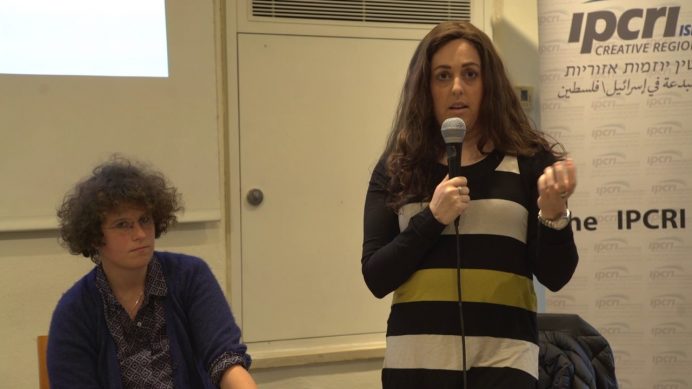

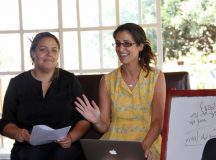
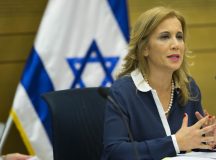
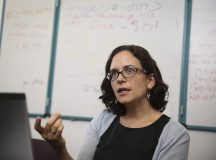
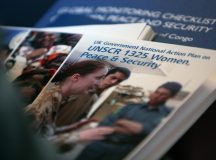































Comments are closed.